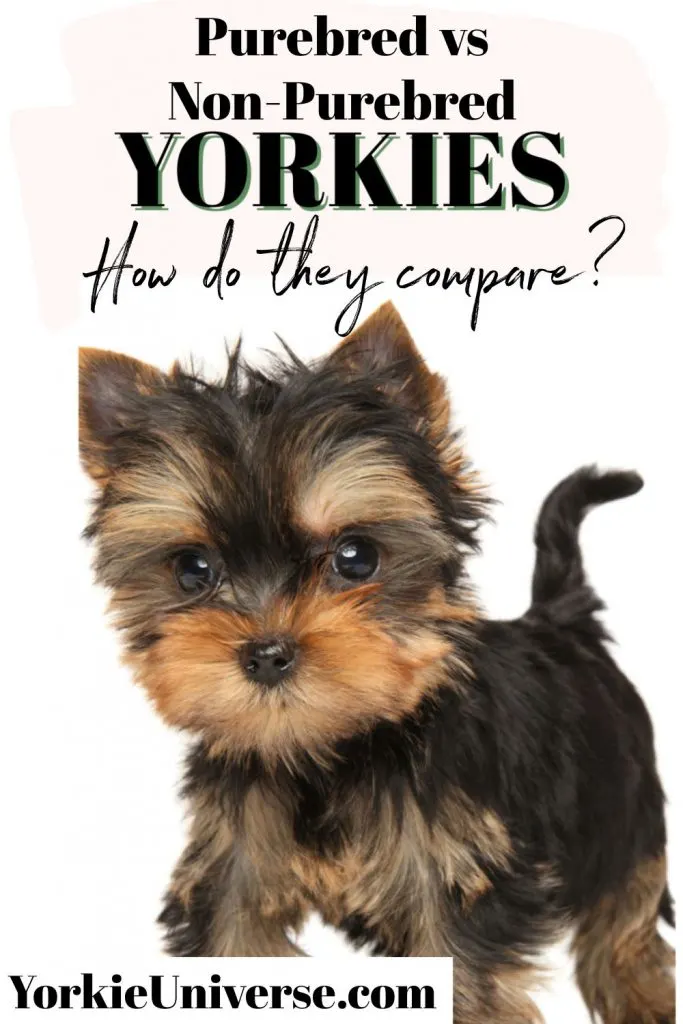Comparing Purebred vs Non-Purebred Yorkies
If you are considering adding a Yorkie to your family, you will encounter various types of Yorkies as you begin the search:
- Purebred Show Quality Yorkies
- Purebred Pet Quality Yorkies
- Non-Purebred, also known as a mixed breed, Yorkies
Any type of Yorkie makes an excellent companion, it just comes down to what you are looking for in your furry friend. So, which type of Yorkie should you choose? Let’s go over the differences to help you make your decision:
Purebred Show Quality Yorkies
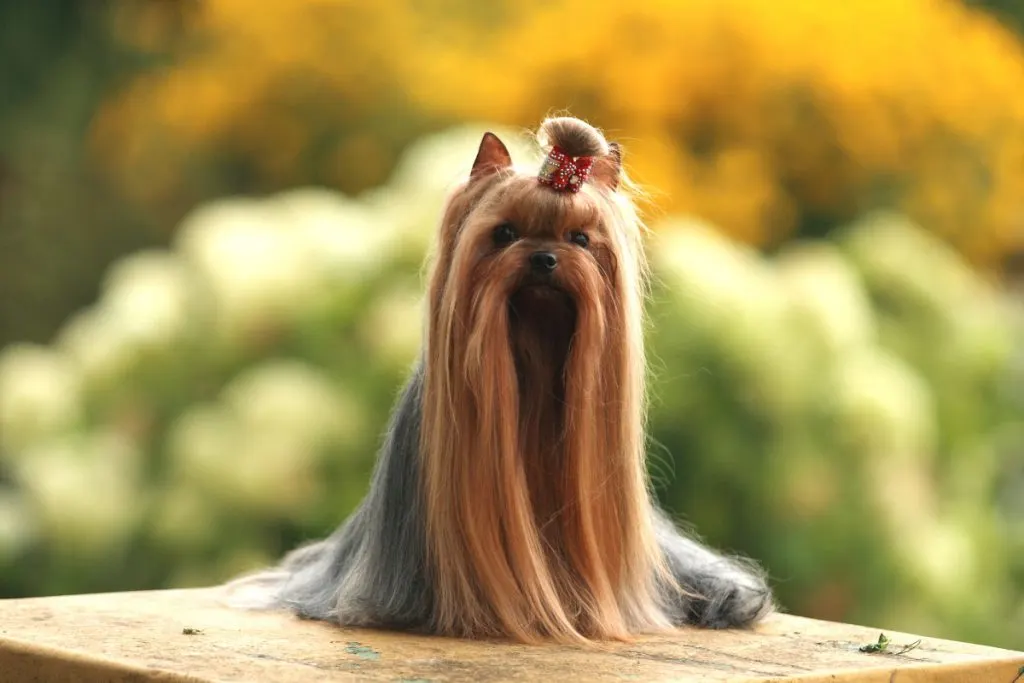
A purebred show quality Yorkie conforms to the American Kennel Club’s (AKC’s) breed standard. The purpose of conforming to this standard is to be able to show the Yorkie in dog shows.
As such, most people who purchase puppies bred to conform to the breed standard have hopes of showing, or plan to breed their dogs, and therefore desire good breeding stock.
Some pet parents prefer Yorkies bred to conform to the breed standard even if they have no plans to show or breed because they want a puppy of a certain size or characteristic.
If this desired size or characteristic is a part of the breed standard, the likelihood that their puppy will be that certain way increases.
Not every puppy born to parents who conform to the breed standard will also meet the breed standard themselves; it is impossible to guarantee.
These puppies would be sold as “pet quality” and may cost less since they cannot be shown, but will likely still be on the higher end of the price scale due to their lineage and potentially higher quality care provided by a careful breeder.
Purebred Pet Quality Yorkies
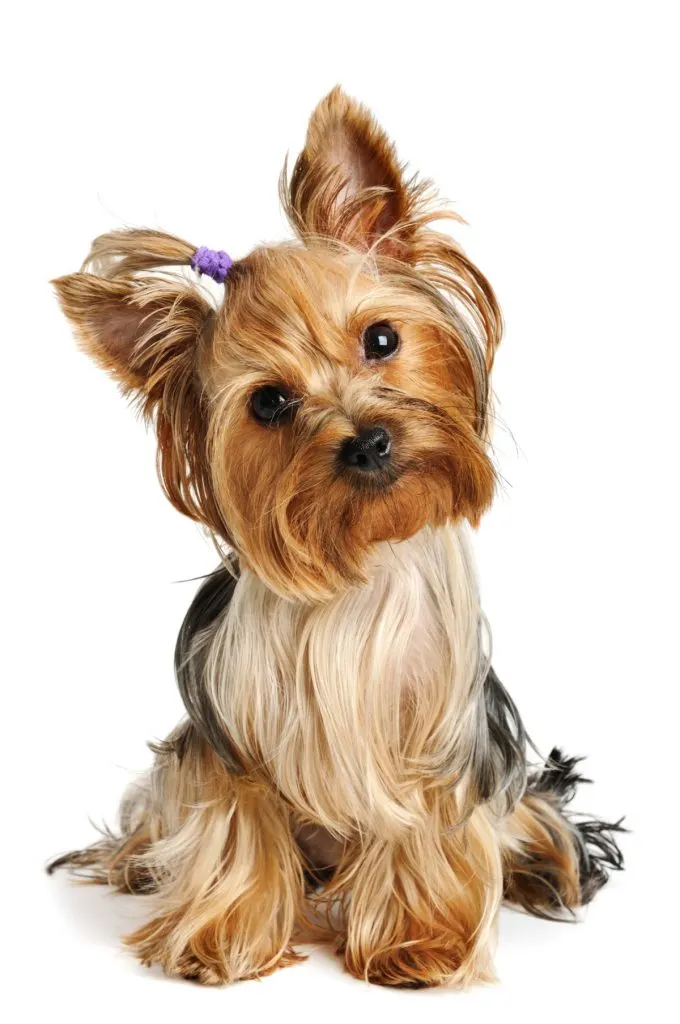
Breeders who breed purebred Yorkies with the goal of producing pure Yorkies, but not puppies that will conform to the breed standard, produce pet-quality Yorkies.
Pet quality Yorkies are often larger or smaller than the breed standard. They may have other coat colors and a slightly different build. If you like the Yorkie breed but would prefer a slightly larger size than the AKC Standard of seven pounds, a pet-quality Yorkie would be the right choice for you.
They may use one or two parents who conform to the breed standard to produce a litter or other pet-quality Yorkies. Most often, these litters are sired by parents who do not conform to the breed standard.
Pet quality Yorkies from breeders are usually less expensive than show quality Yorkies, but you can expect to pay more for them than you would pay for an adoption fee to rescue a Yorkie.
However, you may be able to find a show-quality Yorkie for adoption if you are willing to search diligently and patiently.
Non-Purebred, AKA Mixed Breed, Yorkies

Some breeders will intentionally breed a Yorkie with another breed of dog, or in some cases, pet parents did not spay or neuter their pets, and their Yorkie bred with another dog, resulting in an unplanned litter. The term often used to describe these puppies is a Yorkie mix.
It is often easy to find a Yorkie mix, especially in rescue, such as on Petfinder, where you can search for a dog by breed and age, which will display both pure and mixed dogs of your breed of choice. These dogs are usually the least expensive to obtain, and they have a real need for a loving home.
Finding Your Yorkie Puppy
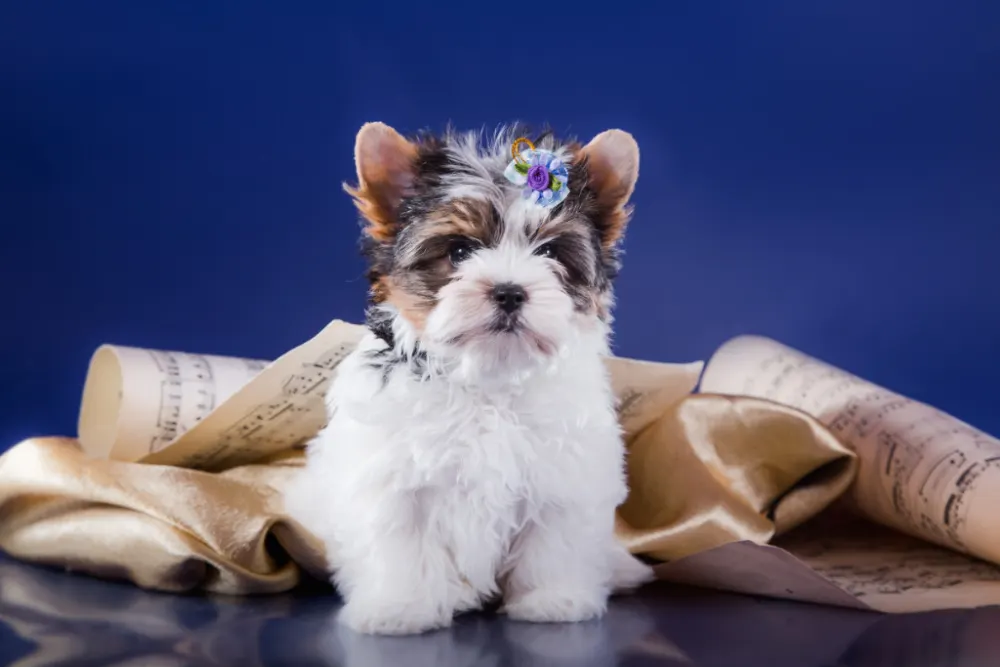
Once you have considered the types of Yorkies available and have chosen which type you would prefer to search for to be your future fur baby, there are a few places to start:
If you are desiring to own a purebred, show-quality Yorkie, begin your search using the American Kennel Club Marketplace or the Yorkshire Terrier Club of America.
To find a pet quality Yorkie, do a google search for Yorkie breeders near you, or use the Yorkshire Terrier Club of America to locate a breeder.
To adopt or rescue a Yorkie or Yorkie mix, do a google search for “Yorkie rescue” in your state, or browse some of the many websites listing adoptable dogs such as Adopt A Pet or Petfinder.
Even if you encounter a local rescue that does not specialize in the Yorkie breed, it cannot hurt to contact them and let them know that you are searching for a Yorkie to adopt. For example, sometimes pitbull-specific rescues encounter other breeds and are run by kind-hearted individuals, they take them anyway.
Supporting Responsible Breeders and Rescues

No matter what type of puppy or dog you decide is right for your family, be sure to do your due diligence to support responsible breeders and rescues.
If when you search for a Yorkie you come across any of the below, they are red flags and as such you should proceed with caution:
- The breeder or rescue demands money to be wired before you meet the Yorkie or have proof that the Yorkie is real.
- The breeder’s price or rescue’s adoption fee for the Yorkie is extremely low or extremely high.
- The breeder or rescue does not ask any screening questions to see if you would be a good fit for the Yorkie.
- The breeder or rescue does not state that you cannot take the Yorkie to an animal shelter, or does not direct you to return the Yorkie to them if you cannot keep him or her for some reason.
- A breeder will not allow you to see, or provide any information regarding, the Yorkie’s parents.
- A breeder will not allow you to see where the Yorkie was raised.
- A breeder keeps the Yorkie in a cage designed for small animals rather than in their home as a member of their family.
- Keep an eye out for the term “teacup” as you search for a Yorkie puppy; the American Kennel Club does not recognize a teacup size for Yorkies; the breed standard states that they should weigh seven pounds and does not detail a smaller size. This term is most often utilized by breeders who are motivated to cater to the preferences of buyers rather than making their priority breeding the healthiest possible Yorkies.
Remember that not all breeders are bad; responsible breeders actually can take steps to prevent pet homelessness by carefully screening potential puppy parents and having customers sign contracts that state they must return the puppy to them if they cannot keep the puppy.
Although it is ideal to rescue a Yorkie, especially with the number of homeless pets today, every dog deserves a loving home no matter their breeding.
If you are prepared to do that and carefully select a responsible breeder, there is nothing wrong with purchasing a specifically bred puppy. Consider donating towards and or volunteering with rescue efforts as well.
Further, sometimes families need a puppy; for example, a dog selective Yorkie who lost their best friend of six years would likely take better to a puppy than another adult Yorkie.
Rescuing a puppy in that scenario could be difficult if you are unsure of the size of the puppy’s parents; the puppy might get too big to play safely with the six-year-old Yorkie.
If you discover an abused or neglected Yorkie, or an irresponsible breeder or rescue, report the offenses to local law enforcement and the ASPCA. To learn more about reporting neglect or abuse, visit the ASPCA website here.
Be sure to read this post about how to spot puppy scams.
Conclusion
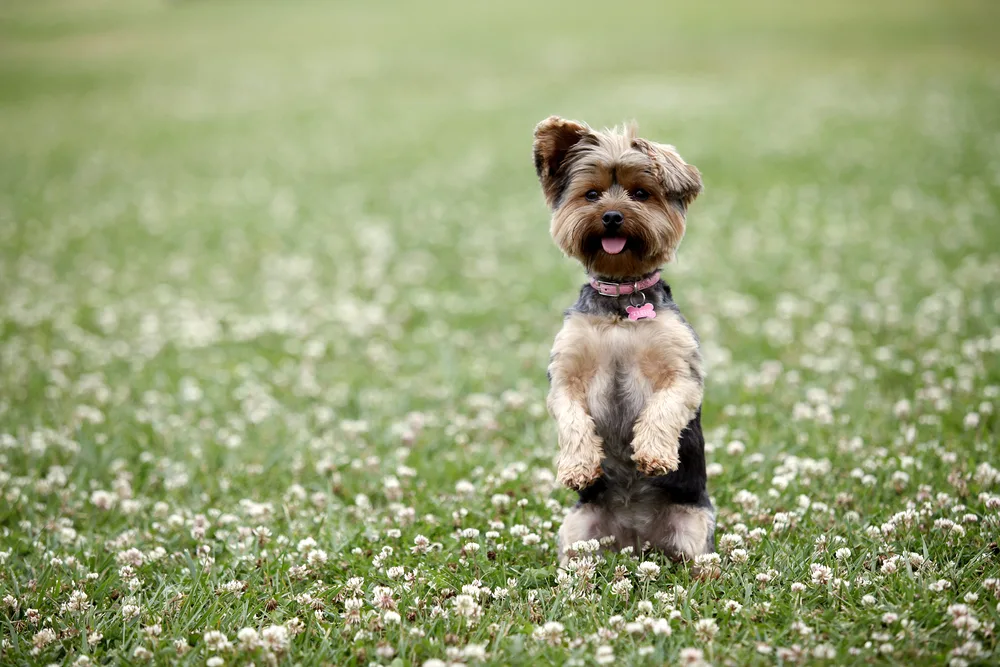
Any type of Yorkie would make a wonderful companion. Based on the wants and needs of your family, one type may make more sense than another other.
No matter what a Yorkie’s family tree looks like, they are all very deserving of loving homes. But be sure to only support responsible breeders and rescues, and report any abuse or neglect that you encounter.


Cathy Bendzunas
Dog Blogger, Former Dog Groomer
I have adored Yorkies for well over 50 years. As a young adult, I began to show and breed them. Now, I just write about them and have several in my little pack of small dogs.
I have had dogs all my life and have trained as a dog groomer. I also have been a kennel worker, worked in a pet hotel through PetSmart, and still am a pet sitter.
Check out my bio for more information about me.

